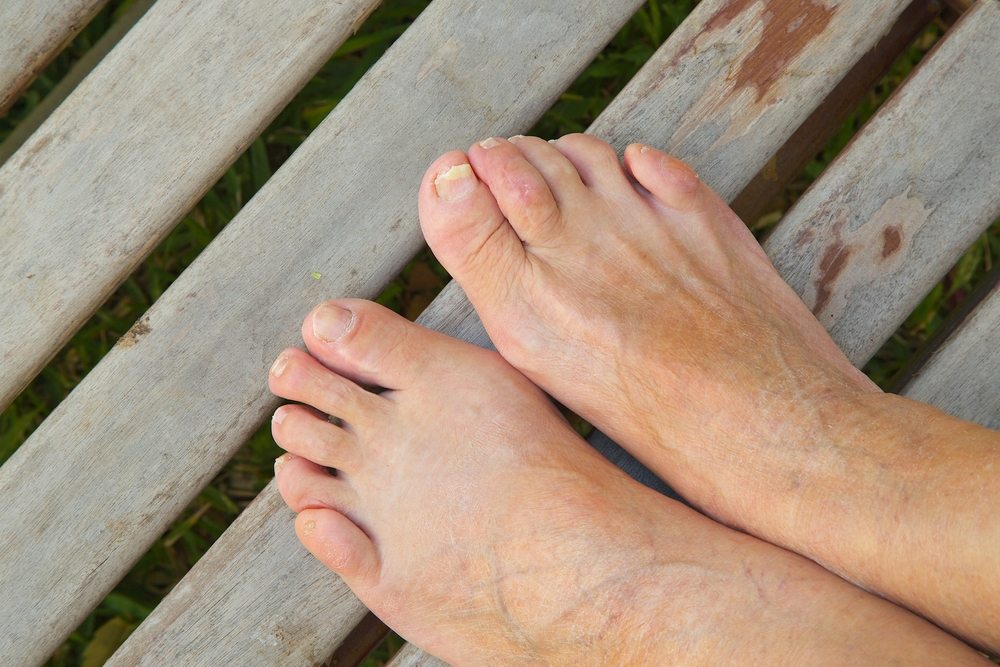
 Hammertoes are toe deformities in which the toes bend downwards at the middle joint. This creates a hammer-like shape and can affect any toes except the big toes. Hammertoes are common, affecting approximately 3% of all adults over the age of 21 in the United States alone. They are more common among women than men. Hammertoes are not a purely cosmetic issue - they can also be quite painful. Over time, the affected joints can become stiff and, if left untreated, can eventually become immobile. The tops of the affected toes also tend to rub uncomfortably against shoes, leading to corns and calluses. If you have hammertoes, don’t hesitate to schedule an appointment with a podiatrist near you.
Hammertoes are toe deformities in which the toes bend downwards at the middle joint. This creates a hammer-like shape and can affect any toes except the big toes. Hammertoes are common, affecting approximately 3% of all adults over the age of 21 in the United States alone. They are more common among women than men. Hammertoes are not a purely cosmetic issue - they can also be quite painful. Over time, the affected joints can become stiff and, if left untreated, can eventually become immobile. The tops of the affected toes also tend to rub uncomfortably against shoes, leading to corns and calluses. If you have hammertoes, don’t hesitate to schedule an appointment with a podiatrist near you.
Hammertoe
Hammertoes can be a painful condition to live with. For more information, contact Dr. Alan J. Spector from Shore Podiatry. Our doctor will answer any of your foot- and ankle-related questions.
Hammertoe is a foot deformity that affects the joints of the second, third, fourth, or fifth toes of your feet. It is a painful foot condition in which these toes curl and arch up, which can often lead to pain when wearing footwear.
Symptoms
Causes
Genetics – People who are genetically predisposed to hammertoe are often more susceptible
Arthritis – Because arthritis affects the joints in your toes, further deformities stemming from arthritis can occur
Trauma – Direct trauma to the toes could potentially lead to hammertoe
Ill-fitting shoes – Undue pressure on the front of the toes from ill-fitting shoes can potentially lead to the development of hammertoe
Treatment
Orthotics – Custom made inserts can be used to help relieve pressure placed on the toes and therefore relieve some of the pain associated with it
Medications – Oral medications such as anti-inflammatories or NSAIDs could be used to treat the pain and inflammation hammertoes causes. Injections of corticosteroids are also sometimes used
Surgery – In more severe cases where the hammertoes have become more rigid, foot surgery is a potential option
If you have any questions please contact our office located in Point Pleasant, NJ . We offer the newest diagnostic and treatment technologies for all your foot and ankle needs.